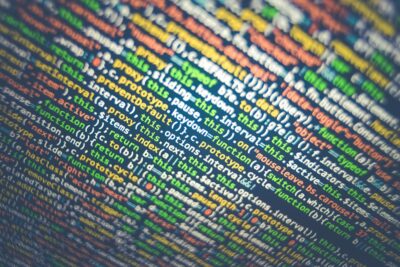Safeguarding Sensitive Data for Business Success
Data anonymization techniques play a crucial role in safeguarding individuals’ privacy when conducting data analytics on sensitive datasets. In today’s data-driven world, where businesses collect vast amounts of personal information, ensuring data privacy and compliance with regulations is paramount. Data anonymization involves the process of transforming personally identifiable information (PII) into anonymized data, thereby protecting individuals’ identities while retaining the utility of the data for analysis purposes. In Saudi Arabia and the UAE, where data privacy regulations are becoming increasingly stringent, implementing robust data anonymization techniques is essential for organizations to mitigate risks and build trust with customers.
The Role of Data Anonymization in Business Operations
Data anonymization is particularly critical in industries such as healthcare, finance, and telecommunications, where sensitive personal information is frequently collected and analyzed. By anonymizing data, organizations can reduce the risk of unauthorized access, data breaches, and regulatory non-compliance. In Riyadh and Dubai, where businesses are subject to strict data protection laws, implementing effective data anonymization measures is not only a legal requirement but also a strategic imperative for maintaining customer trust and reputation. By anonymizing sensitive data such as medical records, financial transactions, and customer profiles, organizations can ensure compliance with regulations such as the General Data Protection Regulation (GDPR) and the Personal Data Protection Law (PDPL).
Preserving Data Utility and Analytical Insights
While data anonymization aims to protect individuals’ privacy, it is essential to balance privacy protection with data utility. Anonymized data should retain its value for analysis purposes, enabling organizations to derive meaningful insights without compromising individuals’ privacy. In industries such as marketing, retail, and e-commerce, anonymized data can provide valuable insights into consumer behavior, market trends, and product preferences. By applying advanced anonymization techniques such as k-anonymity, differential privacy, and homomorphic encryption, organizations can preserve data utility while minimizing the risk of re-identification and privacy breaches. In the ever-evolving landscape of data analytics, where organizations seek to extract actionable insights from vast datasets, data anonymization serves as a cornerstone for ethical and responsible data use.
Building Customer Confidence
In today’s digital age, where data breaches and privacy scandals make headlines, building and maintaining customer trust is more critical than ever. By implementing robust data anonymization techniques, organizations demonstrate their commitment to protecting customer privacy and earning their trust. When customers feel confident that their personal information is handled with care and respect, they are more likely to engage with businesses and share valuable data. In Saudi Arabia and the UAE, where consumers are increasingly concerned about data privacy and security, organizations that prioritize data anonymization gain a competitive edge by fostering trust and loyalty among their customer base.
Enabling Responsible Innovation
Furthermore, data anonymization fosters a culture of responsible innovation by encouraging organizations to explore new opportunities while respecting individuals’ privacy rights. By anonymizing data before sharing it with partners, researchers, or third-party vendors, organizations can collaborate more effectively without compromising data security. This collaborative approach not only promotes knowledge sharing and innovation but also ensures that data is used ethically and responsibly. In a rapidly evolving technological landscape, where emerging technologies such as artificial intelligence and blockchain present new opportunities and challenges, data anonymization serves as a foundational principle for driving innovation while safeguarding privacy rights.
Embracing Ethical Data Practices for Business Integrity
In conclusion, data anonymization techniques play a pivotal role in protecting individuals’ privacy and ensuring compliance with data protection regulations. For businesses operating in Saudi Arabia and the UAE, where data privacy laws are evolving, implementing robust data anonymization measures is essential for maintaining trust and credibility. By anonymizing sensitive data and preserving its utility for analysis, organizations can strike a balance between privacy protection and data-driven decision-making. Ultimately, embracing ethical data practices, including data anonymization, is not only a legal requirement but also a moral imperative for businesses committed to upholding the highest standards of integrity and transparency.
#DataAnonymization #DataPrivacy #Compliance #SaudiArabia #UAE #Riyadh #Dubai #ChangeManagement #ExecutiveCoaching #EffectiveCommunication #BusinessSuccess #ManagementConsulting #ArtificialIntelligence #Blockchain #TheMetaverse #GenerativeAI #LeadershipSkills #ProjectManagement























